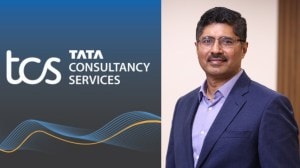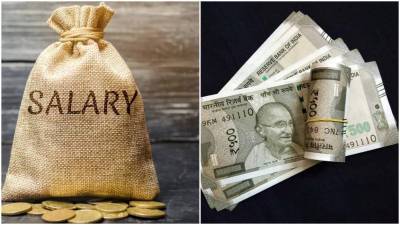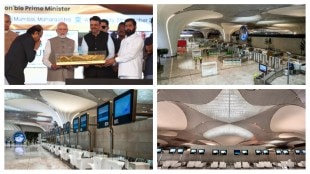Heatstroke in India: With sweltering temperature and scorching heatwaves gripping several parts of India, the deaths due to heatstroke continue to rise across the country.
According to the National Centre for Disease Control (NCDC), at least 56 deaths from heatstroke have been confirmed in multiple states. According to media reports, many states are underreporting deaths due to heatstroke. The data is based on reports submitted by states to the NCDC.
“Full reports on heatstroke deaths are awaited from states like UP and Bihar, where, according to state data, 166 deaths are reported in UP, while 22 people have died of heatstroke in a hospital in Bihar,” sources said, as quoted by ANI.
In May this year, 46 people have died due to heatstroke. However, suspected heatstroke cases in May were 1,918.
According to data shared by states, over 7 lakh people were admitted to emergency departments of primary care hospitals. Of these cumulative suspected heatstroke cases, there have been 24,849 since March 1.
According to data released by the Union Health Ministry, the maximum deaths have occurred in Madhya Pradesh (14), followed by 11 deaths in Maharashtra. Although the reported numbers are expected to be higher.
“If we don’t take care of heat-related illness, there is a spectrum of manifestations — sunburn, cramps, muscle pain, dizziness, and tiredness. These are the early warning signs. If you don’t acknowledge these symptoms, the blood pressure will start falling, and when it becomes non-recordable, that is when we say that the patient has landed up in shock,” Dr Neeraj Nischal, additional professor in the Department of Medicine at AIIMS New Delhi, said as quoted by ANI.
According to Dr Ajay Agarwal, Director, Internal Medicine, Fortis Hospital, Noida, heatstroke is a medical condition in which the body becomes overheated, potentially impairing the normal function of vital organs such as the brain, liver, and kidney and endangering life.
“There is a surge in the number of heatstroke cases reporting to the emergency or OPD (outpatient department) largely with increased body temperature, lethargy, weakness and dryness of mouth. Deaths and hospitalizations from heat can occur extremely rapidly (same day), or have a lagged effect (several days later) and result in accelerating death or illness in the already frail, particularly observed in the first days of heatwaves,” Dr. Agarwal told Financial Express.com.
Even small differences from seasonal average temperatures are associated with increased illness and death, he said.
“Temperature extremes can also worsen chronic conditions, including cardiovascular, respiratory, and cerebrovascular disease and diabetes-related conditions,” he added.
Heatstroke in India: How to know early signs and symptoms?
He also explained that it is very important to identify the early signs and symptoms of heat-related problems.
“The earliest signs will be increased sweating, tiredness, dizziness, the possibility of fainting because of this type of change in blood pressure, and other things. These are the warning signs. Those with co-morbidities are at risk and those who have outdoor activities are at risk. If they don’t hydrate themselves properly, they may have all these problems,” he said.
He also said that people should refrain from drinking cold drinks and other types of aerated beverages since they are unhealthy, especially during heatwaves.
“Cold drinks are not healthy drinks, especially during heatwaves. When you take a cold drink, your thirst will go away for a moment, but it’s such a sugary drink that it will further dehydrate your body. This is not a healthy drink, and one should avoid cold drinks as a source of hydration in this heatwave,” he said.
According to Dr. Nishchal, the best type of drink is water. Apart from that, one can have shikanji, lassi, and buttermilk – any type of healthy drink that will hydrate you.
“If you are sweating too much, ORS and other such stuff can also help,” he added.
“We should be aware of the first signs of heal related illness so that first aid may be given at the earliest. These are profuse sweating, rapid pulse, high body temperature , altered behaviour and shallow breathing. Any individual exposed to high environmental temperature showing these symptoms should be taken to a hospital emergency. Proactively some measures may also be taken to avoid heat related illness,” Dr Tushar Tayal, Lead Consultant, Department of Internal Medicine, CK Birla Hospital, Gurugram told Financial Express.com.
One should drink at least 2-2.5 litres of water or fluids daily, reduce alcohol intake as it can cause dehydration, cut down on tea and coffee as they increase water loss from the body, and reduce their intake of added sugars and processed foods, Dr. Tayal emphasised.
“Additionally, minor tweaks in daily routine also helps, like doing exercise during cooler, less humid times of the day, mixing coconut water, butter milk and seasonal fruits such as watermelon, papaya and mangoes and citrus fruits and salads in our meals. During these times, one should wear light-coloured cotton clothes and limit exposure to the sun by stay indoors during peak heat hours (10 am to 4 pm),” he told Financial Express.com.
Heatstroke in India: Odisha most-affected state
On Monday, a statement from the Odisha government stated that 20 people died due to sunstroke in the state over the last three days as the state was reeling under intense heatwave conditions.
Since Friday, a total of 99 suspected sunstroke deaths were reported by different districts. After post-mortem and inquiry, 20 were confirmed as sunstroke deaths, while two deaths happened due to other causes.
Reportedly, investigation is underway in the rest of the cases.
Prior to this, 42 suspected sunstroke deaths were reported, and of them six cases were confirmed, and it was found that another six deaths happened due to other causes, the statement said.
According to the official, The deaths were mostly reported from Bolangir, Sambalpur, Jharsuguda, Keonjhar, Sonepur, Sundergarh and Balasore districts, officials said. Chief Secretary Pradeep Kumar Jena and Special Relief Commissioner Satyabrata Sahu reviewed the situation with the district collectors on Sunday.
They instructed the district administrations to implement the advisory on heatwave, and take precautionary measures.
The districts were also asked to ensure post-mortem examination of every suspected sunstroke death for sanction of ex-gratia. Also, a joint inquiry by the local revenue officer and the local medical officer needs to be conducted to ascertain the exact cause of each death, officials said, as quoted by PTI.
According to a report by The Hindu, including suspected cases, the total number of deaths in India could be significantly higher, reaching up to 80. Over 5,000 cases of heatstroke were reported in Madhya Pradesh alone.









